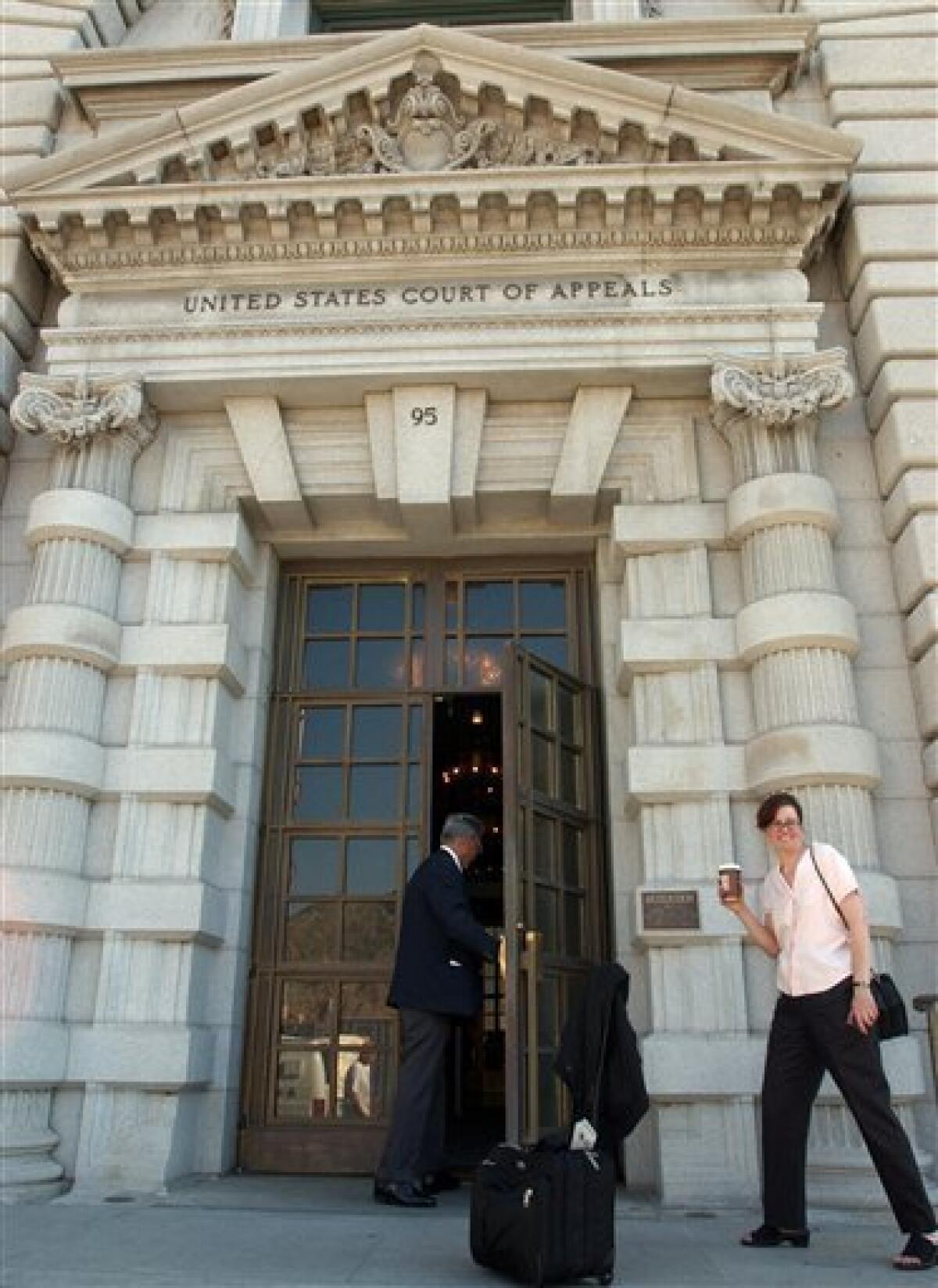Trump administration asks 9th Circuit to lift court order limiting asylum ban

- Share via
The Trump administration is pushing back on a San Diego judge’s preliminary injunction that prohibits immigration authorities from applying a so-called asylum ban to a subset of potentially tens of thousands of migrants at the border.
An attorney for the government urged the U.S. 9th Circuit Court of Appeals on Thursday to stay the preliminary injunction and allow the government to continue to apply the “third-country transit rule” to all migrants while the broader legal fight continues in District Court in San Diego.
The rule, which took effect in mid-July, requires non-Mexican migrants seeking asylum in the United States to first apply for protection in other countries they pass through, including Mexico. If they are denied, only then can they apply for asylum in the U.S.
U.S. Deputy Assistant Atty. Gen. Scott Stewart argued that the preliminary injunction handed down by District Judge Cynthia A. Bashant in November was flawed and that being required to adhere to it for the next several months would create a substantial burden on the already overtaxed asylum system.
“We really want to apply this rule because it is very, very important to the executive branch’s policy agenda,” Stewart said, noting that the Supreme Court in a separate ongoing case had already given the green light for the rule to be applied on a large scale for the time being.
While the appeal is being considered, the 9th Circuit last month agreed to temporarily lift the preliminary injunction to prevent possible “complications at the border,” enabling the government to continue to apply the rule.
Three migrant advocacy groups — Al Otro Lado, the Southern Poverty Law Center and the Center for Constitutional Rights — had requested the preliminary injunction, arguing that the third-country transit rule was being applied unfairly to migrants who approached the U.S. border to claim asylum but were told to wait their turn in Mexico under a policy called “metering.”
Government officials have defended metering, saying it is necessary to limit the number of asylum claims that are officially processed on any given day to manage federal resources.
But migrant advocates argued that while asylum seekers were waiting as instructed, they had the rules changed on them “in a classic bait and switch.”
Those who had already been waiting in line when the rule went into effect July 16 were told they were no longer eligible to claim asylum in the U.S. For many of them, the 30-day window to apply for asylum in Mexico under the third-country rule had long passed.
In considering the preliminary injunction, Bashant said she did not need to make a ruling on the legality of the rule itself, nor on the legality of metering. Instead, she found that the government was not interpreting its own rule correctly. She said it comes down to the definition of “arriving” migrants.
She rejected the government’s definition of “arriving” as officially crossing the international boundary and being accepted into the U.S., saying that migrants who present themselves at a port of entry, even if they are initially turned away and told to wait, should be considered to be in the process of arriving. Therefore, they should be subject to the policies in effect at that particular moment.
In oral arguments in front of a three-judge panel in San Francisco, Stewart disagreed, saying migrants “don’t have rights standing outside the United States like that.”
Ori Lev, a Washington-based lawyer arguing on behalf of the migrant advocacy groups, stressed the high stakes and said the preliminary injunction offered proper relief.
“If the asylum ban is applied to class members … they will forever lose their right to have their claims heard on the basis of the law as it existed when they arrived in the United States,” he argued.
The exact number of migrants affected by the preliminary injunction is still unclear. Attorneys for the migrants suggest about 26,000 asylum seekers were on waitlists in August in 12 Mexican border cities. Tijuana had about 9,000.
Lev rejected the government’s argument that determining who is and is not subject to the preliminary injunction is a substantial burden. Rather, immigration officers must only ask a few extra questions, including when the migrant first arrived to submit a claim, and cross-check that with the unofficial waitlists kept by Mexican authorities at ports of entry along the border.
“We are talking about a narrow class of people here,” Lev argued.
The judges on the appellate panel — Chief Judge Sidney R. Thomas and Judge Marsha S. Berzon, both appointed by President Clinton, and Judge Daniel A. Bress, appointed by President Trump — were highly engaged in the arguments.
The same panel also heard arguments Thursday in an immigration case based out of Oregon.
As in the San Diego case, an attorney for the government asked the panel to stay a preliminary injunction issued in November. This injunction barred a presidential proclamation that would force immigrants seeking visas to carry certain health insurance or show they can afford to pay reasonably foreseeable medical costs before being allowed entry into the U.S.
Both appeals have been submitted for consideration.
Davis writes for the San Diego Union-Tribune.
More to Read
Sign up for Essential California
The most important California stories and recommendations in your inbox every morning.
You may occasionally receive promotional content from the Los Angeles Times.














